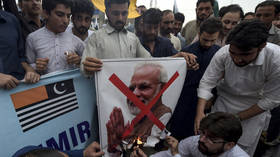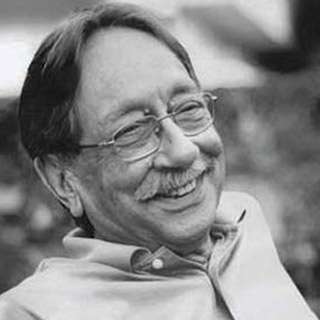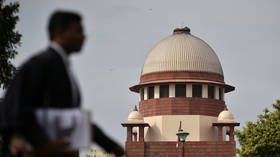Kashmir Islamists are using insidious tactics to nurture radicalization despite a government ban

Political Islam, spearheaded by Jamaat-e-Islami, has been gradually gaining strength India’s Jammu and Kashmir (J&K) territory even as Sufism, Shaivism and Kashmiriyat – the ages-old local philosophy of inter-religious social harmony – are shrinking at a rapid pace.
In 1947, when the Indian subcontinent witnessed riots and dislocation of communities due to the Partition, Mahatma Gandhi, the apostle of peace, referred to J&K as an island of peace.
Sadly, with the growing alienation, the situation is markedly different today. For the first time, one is hearing talk of a Muslim ummah (state) in Kashmir.
Sheikh Mohammad Abdullah, the founding leader of the All Jammu and Kashmir Muslim Conference and the first elected prime minister of Jammu and Kashmir after its accession to India, was the champion of the then-newly formed state’s secularism. He stood steadfastly with India and held the Islamist Jamaat at bay. However, he is being castigated on the streets of Srinagar – the summer capital of J&K, which became a centrally governed union territory after the Narendra Modi-led government stripped it of its state status in August 2019 – for not having sided with Pakistan after the Partition. The Jamaat’s ideology figures much more prominently in social discourse than in the past, which is a troubling sign.
Founded by Maulana Abu al-A'la al-Mawdudi in Lahore in modern-day Pakistan on August 26, 1941, the Jamaat started its activities in 1944 from Jammu as a branch of Jamaat-e-Islami Hind (Hind is the Persian name for India). In 1952, it dissociated itself from the parent body and formed Jammu and Kashmir Jamaat-e-Islami, whose identity has remained distinct ever since. The Jamaat has had its ups and downs and was banned in 1972 and then again in 1995. At present, it is under a five-year ban, which was imposed on February 28, 2019 by India’s Ministry of Home Affairs. In June, 2022, the J&K government banned most of the schools run by the Jamaat, and in December of same year its properties worth 8 billion rupees ($970 million) were also sealed. The leadership of Jamaat and most of its activists have also been arrested.
Nevertheless, there is confidence among Jamaat’s sympathizers that it can survive this crisis as it did in the past. The latest ban of its physical infrastructure and arrest of its leadership seems to have made little impact on the ground in terms of the Jamaat’s political hold and support network. The reason for the durability of the organization is that it has been virtually impossible to bring it entirely under control when its influence has grown beyond its cadres and won it many sympathizers. While members are easily identifiable and can be brought under control, the followers roam freely without the government noticing them. Jamaat’s members and sympathizers are adept at functioning independently to spread the organization’s ideas among the masses.
Jamaat-e-Islami’s strategy is to bide its time amid its organic growth in the Kashmir Valley and beyond in the union territory. A spike in unemployment, the growing number of mosques and volume of Islamic literature are all contributing towards the radicalization of Kashmir. Social media posts circulating in the Valley are also largely influenced and controlled by the Jamaat, which is said to be making inroads into the mainstream as well.
In a post-Covid-19 world, young people have been increasingly working from home for multinational corporations, which enables contacts not only with the US, Canada and the UK, but also Pakistan, Afghanistan and the Middle East inevitably focusing on Kashmir and South Asia at large. The Jamaat’s close links to Pakistan and Türkiye as well as Saudi Arabia and Iran have not gone unnoticed in Kashmir. The presence of Jamaat-e-Islami in other parts of the region, such as Pakistan and Bangladesh, has also emboldened its cadres’ confidence in Kashmir. The Islamist movement’s preference for Pakistan’s deposed prime minister Imran Khan is well known, and so is its stand for Kashmir’s accession into Pakistan.
That the Jamaat has acquired political gravitas equal to or greater than mainstream political parties in Kashmir should be a matter of concern for the government. This discernible trend needs to be properly analyzed and evaluated in order to devise an effective counter to its steady expansion in the Valley. Division of the mainstream and transplantation of more conservative groups by the state to counter the Jamaat could only prove to be counter-productive.
The persistent calls for restoration of statehood and revival of the political and democratic process by the mainstream J&K parties, with no response from the government, only provides the Jamaat with fresh opportunities to both manufacture and misuse popular resentment to expand its influence, despite the ban.
Interestingly, when the ban was imposed on the Jamaat, all the mainstream parties opposed the government move. Now, while silent on the issue, the Jamaat, which is estimated to enjoy about 20% of support in the Valley, is preparing for the elections in Kashmir as and when they will be held. It would not be averse to throwing its lot behind a mainstream force, most likely the winning party.
Apart from its rising political salience, the organization is shaping a narrative that militates against both secular democracy and the accommodative ethos of Kashmir. While the people await the resolution of many of their day-to-day issues by the government, the Jamaat is waiting patiently to capitalize on the failure of the system, without demonstrating any interest in the democratic process.
The graph of militancy may have taken a dip in Kashmir, but there seems to be a paradigm shift in tactics of militants benefitting from the militancy-friendly ecosystem nurtured by the Jamaat over the years.
Meanwhile, it continues with its Islamist endeavor at an underground level, preparing the ground for sustaining militancy in a troubled Indian territory with a tortured past.
The statements, views and opinions expressed in this column are solely those of the author and do not necessarily represent those of RT.















